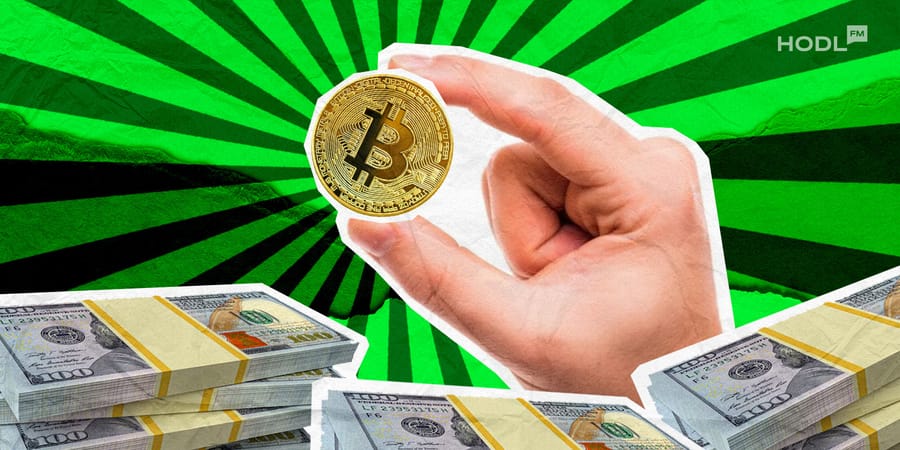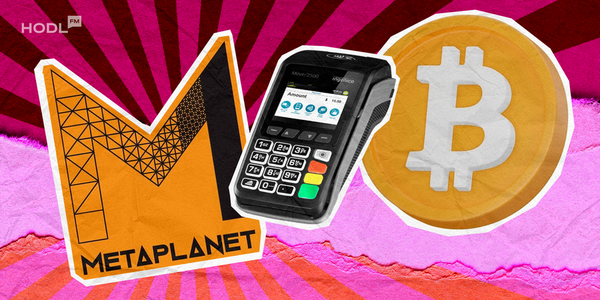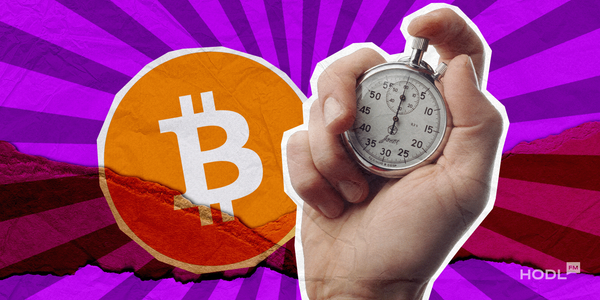Assets Deep-Dive Analysis as Storage of Value and Enrichment Tool
JP Morgan predicts a recession by the end of the year at 60%. Global headline inflation is expected to be 4.2% in 2025, according to the IMF report. With Trump's announcement of sweeping global tariffs, the stock market has gone red. Against this backdrop, people are looking for how to secure their assets.
Gold has always been a safe haven among all assets and Bitcoin, in its way, has become so among cryptocurrencies. Bitcoin has already surpassed gold as an investment asset. But if it overcomes it as a store of value? In this article, we are going to make a detailed assets comparison and find out.
The key things to know about Bitcoin and gold
Bitcoin is a digital currency that isn't backed by any physical asset. It was introduced in 2009 by an individual or group using the pseudonym Satoshi Nakamoto.
Bitcoin holders have gone from "buy for $0.05, sell for $0.09" to "I want to buy this garbage dump to find my 8000 Bitcoins". It's characterized by insane volatility like +1,338% in 2017 and -73% in 2018.
Gold is a valuable asset and a traditional store of value. It was used as money BCE in the form of gold coins, but now it doesn't function in everyday transactions.
Being less volatile, gold went through its most turbulent periods with changes of up to ±27%, while in normal market conditions, the price fluctuates between 0% and 3%. It represents the largest share of reserves held by central banks, with U.S., Germany, and Italy central banks holding more than 60% of their foreign reserves in gold.
Nitesh Shah, head of commodities research at WisdomTree, commented on President Trump's governing style:
"As a result of that, I think we are seeing a lot more demand for gold as a hedge against the previous world order changing."
Store of value
Gold is scarce since it's almost fully mined. Annual mine production increases supply only by low single-digit figures. If humanity succeeds in mining gold from asteroids, only then will the supply of gold increase and the price decrease. However, it's still in the form of the plans.
Bitcoin has a cap of 21 million coins, with over 19 million already in circulation. Due to halving events that occur roughly every four years, mining will gradually slow down, and the last Bitcoin is expected to be produced around the year 2140. "Mining difficulty adjustment" system automatically makes creating bitcoins easier and harder depending on how much energy people are using for it.
Utility
Gold has many applications: investors and central banks use it as an asset, and people - as jewelry and manufacturers - as a key component of electronic devices, from cell phones to televisions.
Its usefulness and, therefore, its price are resilient. In times of financial uncertainty and crisis, investors buy it as a hedge against inflation. When an economy is booming, consumers buy it as part of jewelry and electronics.
Bitcoin's primary use case is financial services, specifically in decentralized finance. It is the base currency of the web3 - the decentralized internet. There, people can lend, borrow, and earn with Bitcoins.
Storage and liquidity
Bitcoins are usually saved on exchanges or wallets. It is super accessible for buying – you can do it with just a few clicks. However, if you have several Bitcoins and want to withdraw all of them, you will encounter difficulties because exchanges have limitations.
For storing gold, you have two options: in real bars or ETFs. When talking about the first, you will scarcely save gold bars at home. Be ready to incur the costs of storing gold in vaults or bank safes. And again, if you need to turn a big savings of gold into cash, it will take time.
Ownership
In 2024, China controlled 55% of computing power on the Bitcoin network, and the USA over 40%. Possession of the asset is also highly concentrated – just 1.81% of investors own 93% of the total supply. That makes Bitcoin an unobvious financial monopoly and concentrates power in a few hands.
Gold is mined across the world, and no continent produces more than 30% of global volume. The US Treasury is the largest holder of gold – it owns just 4% of all the gold. Almost 50% of gold is in jewelry owned around the world, and more than 20% is owned by investors as gold bars and gold coins.
Salvation in times of need
In moments of shocks, like the 2020 COVID-19 or the early days of the 2022 war in Ukraine, Bitcoin often dropped alongside stocks but then rebounded over time.
The issue with Bitcoin is that it's too pliable to the media effect, investor sentiment, regulatory actions, and hype. Bitcoin holders in turbulent times are too anxious and act irrationally, which drives the asset's price down.
Historically, gold shows good results during recessions and geopolitical turmoil: investors apply to it when inflation is high, and fiat currencies are unstable.
"The golden time" of gold is a crisis, but on the contrary, it can go down in a period of stable economic growth. For example, it went down between 2011 and 2015 by nearly 40%.
Regulation
As gold has existed for thousands of years, a solid regulation has been worked out for years. You can buy it only from registered dealers and brokers and cannot carry gold across borders without permission in many countries.
Bitcoin, on the other hand, lacks regimentation. It moves freely in digital form between users' wallets across countries, which simplifies financial operations for both regular users and bad actors. And Bitcoin's anonymous nature makes it difficult to track illegal payments and help scam victims.
Investment instrument
Bitcoin doesn't bring any cash flows and dividends, unlike stocks. Its price is the ratio of supply and demand. However, Bitcoin is much more profitable than any other asset. It has been up hundreds of thousands of percent since 2013.
Income from gold comes solely from price changes. Historically, real gold returns hover around 0 – 2% annually. It makes gold less appealing as an investment asset.
Price predictions
For now, Bitcoin is expected to return to $100,000, on condition that Trump's promises of a pro-crypto policy come true.
Interesting fact: If Bitcoin captures just 5% of global wealth (a fraction of what gold represents), each coin would be worth over $1 million.
Deutsche Bank expects gold to average $3,139 in 2025 and $3,700 in 2026. The bank made these forecasts based on the heightened geopolitical tensions and growing expectations of Federal Reserve rate cuts amid rising recession risks.
Making a choice
We have discussed a lot of characteristics of gold and Bitcoin. Here is a table that summarizes the comparison. As we can see, the assets are similar only in scarcity, but otherwise, they are opposites.
Let's try to answer the question – where to invest?
If you want to save your capital even if all financial systems collapse but get 1% profit per year, buy gold. If you want to get an enormous income but to get some grey hair, take Bitcoin. It's just on the lows right now.
It's a joke, surely. In fact, the main question you should ask yourself before investing is, what is my goal? Do I want to save capital or grow it? What kind of risk am I ready to tolerate? And based on the answers, make a decision. Gold and bitcoin are not competitors, they are complementary.

Disclaimer: All materials on this site are for informational purposes only. None of the material should be interpreted as investment advice. Please note that despite the nature of much of the material created and hosted on this website, HODL FM is not a financial reference resource and the opinions of authors and other contributors are their own and should not be taken as financial advice. If you require advice of this sort, HODL FM strongly recommends contacting a qualified industry professional.





